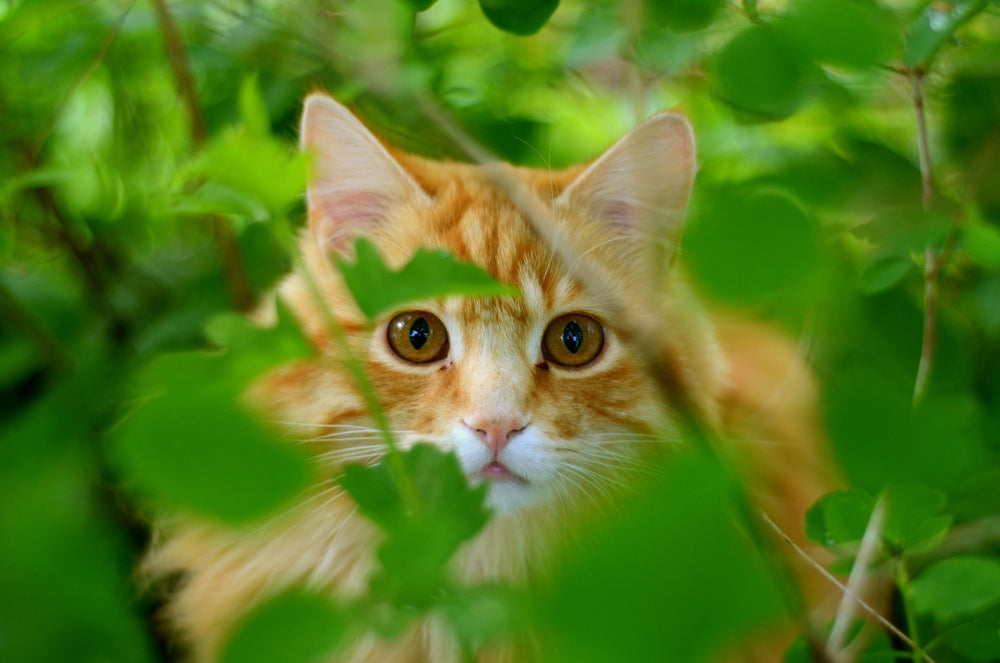
October 22, 2019 4 min read
You may have found your kitty as a stray or adopted him from a shelter. He may have had a family and been abandoned, or he may have been well-loved and then endured some trauma in the streets. He may never have been in the wild at all, going straight from someone else’s home to yours without a moment in between. Whatever the cause of his anxiety, your cat is now skittish and reclusive. Cat body language is pretty easy to read once you speak the language. He may hide from the whole world or hiss and run away whenever anyone comes near him. Maybe this is a new cat behavior and you are wondering what caused it, and, more importantly, how you can help him feel more comfortable again.
If your cat has always been slow to warm up to people or super selective about who he shows up around, he may just prefer to be solitary. If his behavior changes dramatically in a short period of time, however, it may be time to find out what is wrong.
Cat body language can be the key to knowing the difference.
No one quite knows why some cats prefer their own company to yours. Some cats, like humans, may simply be loners at heart. Others may have been mistreated in their early years and their preference for solitude is a coping mechanism.
Many cats just try and find a dark spot to make a sort of makeshift den as they would if they were feral. Cat body language and behavior have evolved to be hyper-vigilant of their surroundings even while asleep, so finding an enclosed spot out of the way was a tool to be able to relax better and rest more solidly. Cats with a ‘den’ exhibit much fewer anxious behaviors and lower levels of cortisol, the stress hormone, than cats without a place to hide.
Often a cat that is sick will suddenly become a recluse. If you realize you have not seen your cat come out to play in a while, try and find him. Look in quiet, dark places away from the hustle and bustle of daily life such as:
Watch for cat behaviors that can signal illness beyond just a personality prone to being reclusive, including:
If you suspect your cat is ill, call your veterinarian right away. Many serious feline diseases present with a general malaise before the illness progresses. When treated effectively at an early stage, your cats’ long-term prognosis is significantly better.
If your cat is a kitten, exposing him to different people can make him more and more comfortable with humans right from the start.
If you get your cat when he is older or he starts to develop reclusive behavior later in life, it is important to approach him gently and in a non-threatening manner. For instance, try to:
Playtime is essential for your cat's health. It can help avoid naughty cat behaviors like the destruction of property and hostility toward other animals and humans. If your cat responds well to your efforts to play with him, start slowly and make sure he gets lots of treats!
Above all, make sure he has plenty of escape routes whenever you try to engage him. If your kitty does not take well to social time, just give him space. Let him be alone for a while. Keep his environment as peaceful and noninvasive as possible. Maintain a routine so he knows when you will be coming and going each day.
Your cat may do well with vertical space in a common living area. It allows him to watch from a safe height. Cat trees with holes to hide in are common, but you can also use tall bookshelves bolted to the wall and wall-mounted ledges for him. Just make sure everything can hold his weight while he jumps from one to another!
With a little extra effort and plenty of patience, it is possible to learn your reclusive cat’s patterns and behaviors. You can learn to decode his language, so to speak. Then you can better meet his needs and form a more solid relationship!